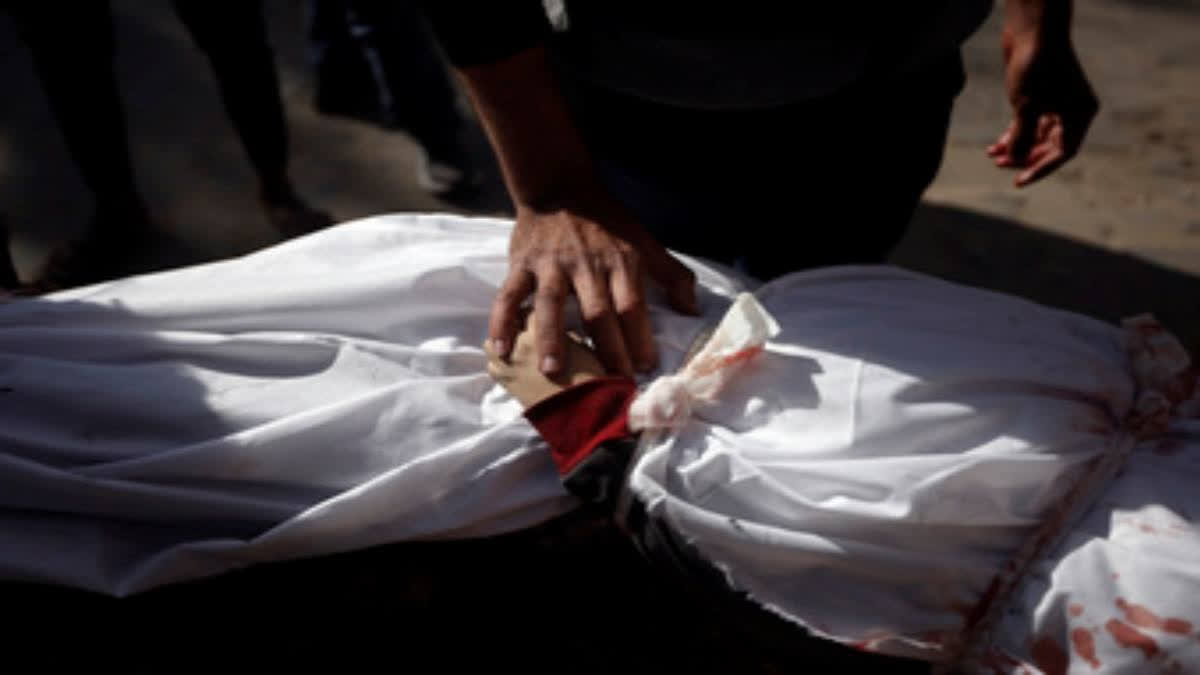JERUSALEM: Dozens of family members of hostages held by Hamas stormed a committee meeting in Israel's parliament Monday, demanding a deal to win their loved ones' release, as European foreign ministers joined growing international calls for Israel to negotiate on the creation of a Palestinian state after the war.
The developments showed the increasing pressure on Israeli Prime Minister Benjamin Netanyahu, who has dug in on both fronts. He has insisted to the Israeli public that pursuing the devastating offensive in Gaza is the only way to bring the hostages home. At the same time, he has rejected the United States' vision for a postwar resolution, saying he will never allow a Palestinian state.
The dispute over Gaza's future — as the war rages with no end in sight — pits Israel against its top ally, the United States, as well as much of the international community. It also poses a major obstacle to any plans for postwar governance or reconstruction of the coastal territory, large parts of which have been left unlivable by Israeli bombardment.
In the most direct comments yet from Saudi Arabia, the kingdom's top diplomat said it will not normalize relations with Israel or contribute to Gaza's reconstruction without a credible path to a Palestinian state.
Netanyahu has vowed to continue the offensive until "complete victory" over Hamas and to return all remaining hostages after the Oct. 7 rampage in southern Israel that triggered the war. In that attack, some 1,200 people were killed and Hamas and other militants abducted around 250 people.
But more than three months into the war, Israelis are increasingly divided on the question of whether it's possible to do both.
Around 100 hostages were freed under a weeklong cease-fire deal in November in exchange for the release of Palestinians held in Israeli prisons. Around 130 remain captive, but a number have since been confirmed dead. Hamas has said it will free more captives only in exchange for an end to the war and the release of thousands of Palestinian prisoners. Netanyahu has ruled out such an agreement.
Anger has been growing among hostages' families. Relatives of hostages, as well as other protesters, have set up a tent camp outside Netanyahu's residence in Jerusalem and vowed to remain until a deal is reached to bring the rest of the captives home. Other protests have called for new elections.
On Monday, dozens of family members of the hostages stormed into a gathering of the Knesset's finance committee, holding up signs and yelling, "You won't sit here while they are dying there!"
"These are our children!" they shouted. "We can't continue with any other agenda, we need to discuss only one thing right now!"
Some had to be physically restrained as they shouted at the lawmakers, and at least one person was escorted out. The meeting was briefly suspended but later reconvened.
OVER 25,000 KILLED IN GAZA:Israel's offensive has killed at least 25,295 Palestinians in Gaza and wounded more than 60,000, according to the Gaza Health Ministry. The ministry does not distinguish between civilians and combatants but says around two-thirds of those killed were women and children.
Medics reported heavy fighting in the southern city of Khan Younis, saying dozens of dead and wounded people were brought to the city's already overwhelmed Nasser Hospital. Families could be seen fleeing south, to areas already packed with hundreds of thousands of displaced people.
The Israeli military says it has killed around 9,000 militants, without providing evidence, and blames the high civilian death toll on Hamas because it positions fighters, tunnels and other militant infrastructure in dense residential areas.
Some 85% of Gaza's 2.3 million people have fled their homes, seeking elusive shelter in the south as Israel continues to strike all parts of the besieged enclave. U.N. officials say 1 in 4 people in Gaza are starving as the fighting and Israeli restrictions hinder the delivery of humanitarian aid.
